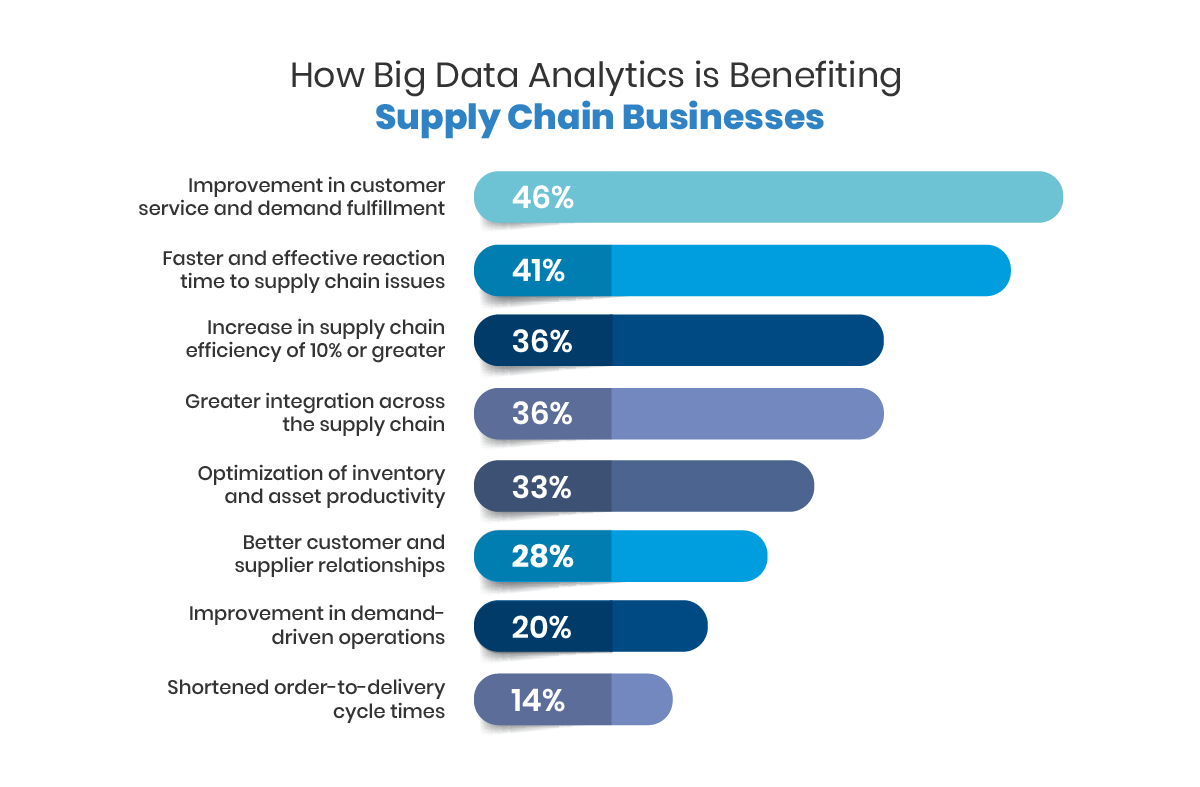
Supply chain optimization is critical for businesses to remain competitive in today's global market. The ability to optimize supply chains can help businesses reduce costs, improve efficiency, and gain a competitive advantage. Big data analytics offers a solution by enabling businesses to analyze large volumes of data to identify patterns and trends that can inform supply chain decisions. In this article, we'll explore the ways in which big data analytics can be used to optimize supply chains and enhance efficiency.
What is Big Data Analytics?
Big data analytics involves the use of advanced analytics techniques to analyze large volumes of data to uncover insights and patterns. It typically involves the use of machine learning algorithms and other statistical techniques to identify patterns and relationships in data that may not be immediately apparent.
The Role of Big Data Analytics in Supply Chain Optimization
Big data analytics can play a critical role in supply chain optimization by enabling businesses to identify inefficiencies in their supply chains and take action to address them. By analyzing large volumes of data from a variety of sources, businesses can gain insights into their supply chains and identify areas where they can improve efficiency and reduce costs.
- Forecasting Demand
Big data analytics can be used to forecast demand by analyzing data on customer behavior and market trends. By identifying patterns and trends in this data, businesses can optimize their supply chains to better meet demand.
- Inventory Management
Big data analytics can be used to optimize inventory management by analyzing data on inventory levels and customer demand. By identifying patterns and trends in this data, businesses can reduce excess inventory and better manage their supply chains.
- Transportation Optimization
Big data analytics can be used to optimize transportation by analyzing data on shipping routes, delivery times, and transportation costs. By identifying patterns and trends in this data, businesses can optimize their transportation networks to reduce costs and improve efficiency.
Examples of Big Data Analytics in Supply Chain Optimization
There are many examples of businesses using big data analytics to optimize their supply chains:
- Retailers
Retailers use big data analytics to optimize their supply chains by analyzing data on customer behavior and inventory levels. By identifying patterns and trends in this data, retailers can optimize their inventory and transportation networks to reduce costs and improve efficiency.
- Manufacturers
Manufacturers use big data analytics to optimize their supply chains by analyzing data on production processes, inventory levels, and transportation routes. By identifying patterns and trends in this data, manufacturers can optimize their production and transportation networks to reduce costs and improve efficiency.
- Logistics Companies
Logistics companies use big data analytics to optimize their supply chains by analyzing data on shipping routes, delivery times, and transportation costs. By identifying patterns and trends in this data, logistics companies can optimize their transportation networks to reduce costs and improve efficiency.
Challenges of Big Data Analytics in Supply Chain Optimization
While big data analytics offers many benefits for supply chain optimization, there are also challenges that need to be addressed:
- Data Privacy and Security
Data privacy and security are major concerns when it comes to big data analytics in supply chain optimization. Businesses need to ensure that supply chain data is collected and stored in a secure and ethical manner.
- Data Quality
Data quality is a challenge in big data analytics in supply chain optimization. Ensuring that data is accurate, complete, and consistent can be difficult, especially when dealing with large volumes of data from multiple sources.
- Complexity
Big data analytics can be complex and require specialized knowledge and expertise. Businesses need to invest in training and education to ensure that they have the skills and knowledge to effectively use these tools.
Conclusion
Big data analytics can play a critical role in supply chain optimization by enabling businesses to identify inefficiencies in their supply chains and take action to address them. By analyzing large volumes of data from a variety of sources, businesses can gain insights into their supply chains and identify areas where they can improve efficiency and reduce costs. However, businesses need to address challenges around data privacy and security, data quality, and complexity to fully realize the benefits of big data analytics in supply chain optimization. As businesses continue to integrate these tools into their operations, it is important that they prioritize transparency, accountability, and the well-being of their customers and society as a whole.